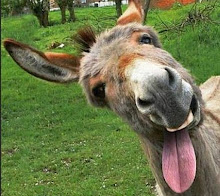
Can science and religion coexist?
This is a question that is asked and answered every day, but there are a lot of mutually inconsistent answers to the question. I know a lot of scientists who are deeply religious, and see no paradox in searching for an understanding of the rules under which the universe operates and a belief in God, the Creator of the universe. That is my position on it, also. As a sort of scientist (114 peer reviewed articles in the literature) I try and take an objective look at the evidence before drawing conclusions, and begin with the null hypothesis.
When I lie on the ground, up in the mountains, away from city lights and smog, and above a fair amount of our atmosphere, I can see a lot of stars. What I see is but a tiny fraction of what is there. Science tells me that all of them are moving away from me, as a result of the "Big Bang". I have no problem in believing that the evidence supports that theory of the origin of the universe. I still have a few small problems with the theory, when I consider the size of our expanding universe. I have trouble understanding where that big bang happened, and how and why it happened. If it was just a random event, it seems to have led to an amazing amount of matter, and a huge volume of space, organized in beautiful and logical order, and obeying laws and principles that we are beginning to understand and appreciate. To assume that these laws and principles are absolute, and that a random event occurring nowhere at all would have to obey them seems illogical to me. Nothingness or chaos implies a lack of order and rules. Matter and energy are interchangeable, but incalculable amounts of matter and energy appeared, with no input of energy, as a random event. Where did it happen? I can easily imagine the random and spontaneous formation of a hydrogen atom and its antimatter opposite, as occurring in the vastness of existing space, and requiring no volition or input of energy. I have more difficulty with the same thing happening on such a huge scale, where there is nothing, not even empty space. And where is all the antimatter, necessary to keep the equation balanced, and energy neutral. One theory has it that slightly more matter was created in the big bang than antimatter, and, as a result of collisions, almost all of the antimatter and an equal amount of matter were destroyed, leaving behind only the surplus of matter. There are a few problems in that, as collisions between matter and antimatter release energy, in the form of gamma rays and other particles. If their destruction releases energy, how were they formed without an input of energy? How can more matter than antimatter have been created, without an input of matter or energy?
Setting some of the questions aside, it would seem that all the space, matter, order and rules in the universe began from nothing, nowhere, and sprang from a single, random event that happened for no reason, and required no input of energy. Accepting that theory requires a much greater faith in the power of nothingness, than the faith in God required to accept an alternative explanation. And that would be the biggest sucker bet of all imaginable sucker bets. For thousands of years, scientists have looked at the same evidence, and drawn similar conclusions. Galen of Pergamum, who lived from 126 AD to about 216 AD, was a physician and scientist whose work, observations and writings were the basis for most of medicine for about 1400 years. His writings indicate that he believed pretty much as I do. Some of his medical beliefs were erroneous, but most of his principles are sound. Not a Christian, so far as is known, he became the surgeon for the gladiators, and developed great skill as a trauma surgeon. He wrote that the followers of Jesus had less fear of death and its consequences than others he dealt with, and were more obedient to the laws of God.
Every physician and surgeon sees dying patients and their families, and my observations are similar, although not identical, to Galen's. I think that people who have faith in God have more grace and dignity when faced with the certainty of death than those who lack any faith.


5 comments:
Well explained. Makes sense to me.
Hard discussion. I'm anti-religion myself, stemming from various personal reasons, but I have found that people with faith in a God often turn to Him when faced with adversity. I also, however, see them do some rather stupid things with the idea "God will get me through."
My dad once said that people who learn about the world through science tend to lose God. Why is that? For the same considerations, why is it that scientists understand evolution as constant and ubiquitous while others refuse to accept it at all (yet still understand Abx-resistant bacteria)?
I don't think that being a scientist actually leads to a lost belief in a God. However I do feel that it can be a lot harder to believe for the same reasons.
For some people, trying to resolve the God vs. science issue is a matter of putting science and religion in separate mental compartments. That way you can believe in God on Sunday, and believe that science has all the answers the rest of the time.
Others believe in God as the explanation for those things not fully elucidated by present science. That is called God of the gaps.
Some people think that evolution and the big bang have pretty well wiped out religion, but from another perspective, both are descriptive, not explanatory. Both leave plenty of room for belief or doubt. I find it interesting that the originator of the big bang was a Priest, and later, Monsigneur, George Lemaiter.
The Pope quickly endorsed the theory, as it supported the creationist view. After all, if the universe had always been there, there was no need for a Creator. The moment you realize that it came into existence at a certain time, then you need to ask how and why, and even, where?
Religion doesn't have to involve churchgoing or praying, and it doesn't have to be a dirty word. It's just about acknowledging that we don't have all the answers, and that we probably never will. For some of us, anyway.
How could the universe began to exist and was created out of nothing.
It just came from a big bang...a big bang of what?
There had to be a cause, if there was no God, space or time, then how in the world could the universe come to exist?
It is said that the Big Bang Theory created matter from nothing.
How could nothing create anything?
Great post!
Post a Comment